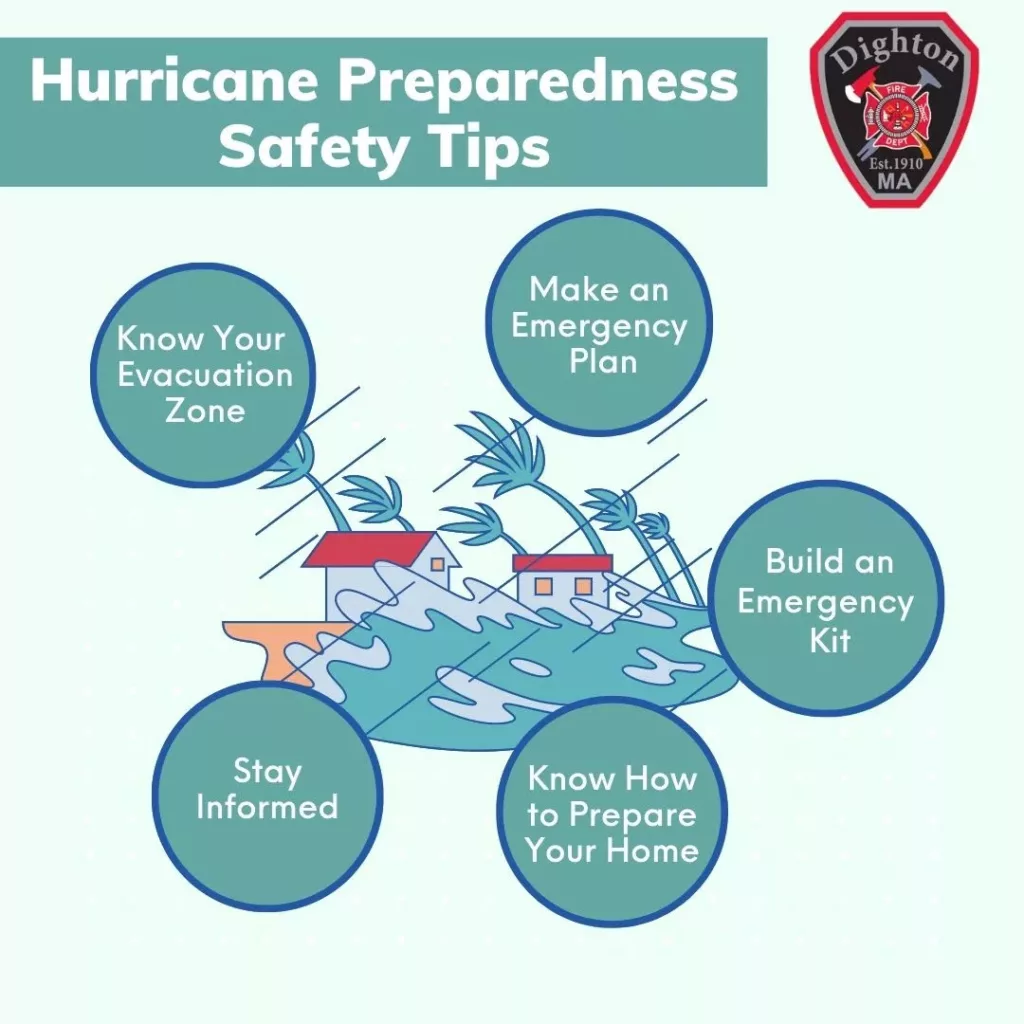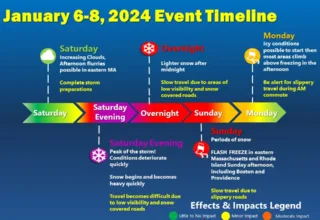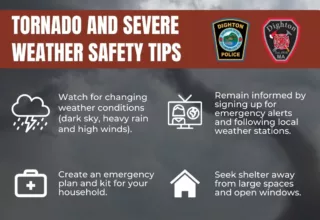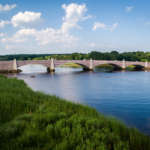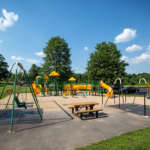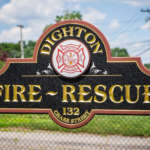DIGHTON — Chief Christopher Maguy and the Dighton Fire Department wish to share guidance on hurricane awareness and preparedness this season.
Gov. Maura Healey has proclaimed July 9-15 as Hurricane Preparedness Week in Massachusetts, which recognizes the importance of preparing for the impact of extreme weather.
June 1 marked the official start of the Atlantic Hurricane Season, which runs through Nov. 30. Most hurricanes and tropical storms that impact New England occur during late August and September, and residents are encouraged to prepare early.
Hurricanes can bring many types of wind and water hazards, including storm surges, strong winds and flooding. The Department of Homeland Security and the Federal Emergency Management Agency (FEMA) offer several tips to help residents better prepare for extreme weather should it occur.
Know Your Evacuation Zone: Learn if you live or work in a hurricane evacuation zone. The best action to protect yourself and your family from the flooding and high winds caused by hurricanes is to evacuate when ordered to do so, before those conditions hit your area. Know and follow the directions from local officials for community evacuation and follow posted evacuation routes.
Visit www.mass.gov/knowyourzone to learn if you live or work in a hurricane evacuation zone. If you live in an area that may flood and may need assistance evacuating, plan with family, neighbors, and friends who may be able to assist, and contact your local public safety officials to make them aware of your needs.
Make an Emergency Plan: Have an emergency plan for how your family would communicate, evacuate and shelter in place should there be an emergency. An emergency plan should address the specific needs of all of your family members and those you are responsible for.
Steps to making an emergency plan include the following:
- Discuss the questions below with your family, friends, or household:
- How will I receive emergency alerts and warnings?
- What is my shelter plan?
- What is my evacuation route?
- What is my family/household communication plan?
- Consider specific needs for everyone in your household, including seniors, children, individuals with access and functional needs, and pets. Dietary needs, medical needs including prescriptions and equipment, disabilities or access and functional needs including devices and equipment, and cultural and religious considerations should all be taken into account when creating an emergency plan.
- Fill out a Family Emergency Plan. A sample plan can be found here.
- Practice your plan with your family/household.
Build an Emergency Kit: Build an emergency kit that will sustain your household for 3-5 days without power. A basic emergency supply kit might include the following recommended items:
- Food and water
- Battery-powered or hand-crank radio and a NOAA Weather Radio with tone alert
- Flashlight and extra batteries
- First aid kit
- Whistle (to signal for help)
- Dust mask (to help filter contaminated air)
- Soap, hand sanitizer, and disinfecting wipes
- Prescription and non-prescription medications
- Eyeglasses and contact lens solution
- Infant formula, bottles, diapers, and wipes
- Important family documents, and cash or traveler’s checks
- Plastic sheeting and duct tape (to shelter in place)
- Moist towelettes, garbage bags, and plastic ties (for personal sanitation)
- Wrench or pliers (to turn off utilities)
- Manual can opener (for food)
- Local maps
- Cell phone with chargers and a backup battery
Store items in airtight plastic bags and put your entire disaster supplies kit in one or two easy-to-carry containers such as plastic bins or a duffel bag.
Prepare Your Home: You can improve your home’s ability to withstand hurricane conditions. Consider cutting weak branches and trees that could fall on your house. Make sure there’s nothing that could blow around during the storm and damage your home, and move bikes, lawn furniture, grills, propane tanks and building material inside or under shelter. Keep drains, gutters and downspouts clear of debris. Cover up windows and doors by using storm shutters or pieces of plywood. Secure all doors on your property and find a safe location for your vehicle.
Stay Informed: Every family should have multiple methods for receiving emergency alerts. Learn more about different types of alerting and information tools including the Emergency Alert System, Wireless Emergency Alerts, NOAA Weather Radio, social and traditional news media, and local notification systems.
The Commonwealth’s 2-1-1 hotline is available 24×7 for non-emergency assistance. It is available with translation in more than 150 languages and can be accessed via video relay services.
For more information on hurricane planning, click here.
###
